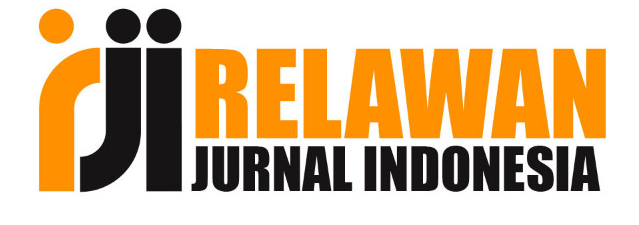Enhancing The Seventh Grade Students’ Speaking Achievement of SMPN 38 Palembang Through Scaffolding Talk Technique
DOI:
https://doi.org/10.36982/jge.v7i1.520Abstract
Abstract
The purposes of the study were to find out whether or not Scaffolding Talk Technique was effective to enhance the speaking achievement and speaking aspects of the seventh grade students of SMPN 38 Palembang and to find out whether or not there was significant difference on speaking achievement between the students who were taught by using Scaffolding Talk Technique and those who were not. In order to achieve the purposes of the study, the writer has conducted an experimental research design. Besides, 60 students were selected by using purposive sampling to be the experimental and control group. The experimental group was taught through Scaffolding Talk technique carried out for 2 months. The results of the achievement test were statistically analyzed by using paired samples t-test and independent samples t-test. The mean score of experimental group in pre-test was (11.67) enhanced to (15.37) in post-test. Furthermore, the speaking aspects enhanced for each aspects. The mean score of comprehension in pre-test was (2.83) enhanced to (3.03), Vocabulary (2.80) enhanced to (3.03), Pronunciation (2.27) enhanced to (2.93), Grammar (1.93) enhanced to (2.90), and fluency (1.83) enhanced to (2.73). Moreover, the significant difference of post-test both of groups was 0.01. In short, Scaffolding Talk Technique was effective to enhance the speaking achievement and speaking aspects. Additionally, there was the significant difference on speaking achievement between the students who were taught by using Scaffolding Talk Technique and those who were not. Furthermore, during teaching and learning process, students were more active in speaking class and more confident to perform or do the task independently without any help from teacher or peer.
Keywords : teaching, scaffolding talk technique, speaking achievement.
Â
Abstrak
Tujuan penelitian ini adalah untuk mengetahui apakah Scaffolding Talk Technique efektif untuk meningkatkan prestasi berbicara dan aspek berbicara siswa kelas tujuh SMPN 38 Palembang dan untuk mengetahui apakah ada perbedaan yang signifikan pada prestasi berbicara antara siswa yang diajar dengan menggunakan Teknik Bicara Scaffolding dan mereka yang tidak. Untuk mencapai tujuan penelitian, penulis telah melakukan desain penelitian eksperimental. Selain itu, 60 siswa dipilih dengan menggunakan purposive sampling menjadi kelompok eksperimen dan kontrol. Kelompok eksperimen diajarkan melalui teknik Scaffolding Talk yang dilakukan selama 2 bulan. Hasil tes prestasi dianalisis secara statistik dengan menggunakan paired samples t-test dan independent samples t-test. Skor rata-rata dari kelompok eksperimen dalam pre-test adalah (11,67) ditingkatkan menjadi (15,37) dalam post-test. Selanjutnya, aspek berbicara ditingkatkan untuk setiap aspek. Skor rata-rata pemahaman dalam pre-test adalah (2,83) ditingkatkan ke (3,03), Vocabulary (2,80) ditingkatkan ke (3,03), Pelafalan (2,27) ditingkatkan menjadi (2,93), Grammar (1,93) ditingkatkan menjadi (2,90), dan kefasihan (1,83) ditingkatkan ke (2,73). Selain itu, perbedaan signifikan dari post-test kedua kelompok adalah 0,01. Singkatnya, Teknik Scaffolding Talk efektif untuk meningkatkan prestasi berbicara dan aspek berbicara. Selain itu, ada perbedaan yang signifikan pada prestasi berbicara antara siswa yang diajar dengan menggunakan Teknik Bicara Scaffolding dan mereka yang tidak. Selanjutnya, selama proses belajar mengajar, siswa lebih aktif di kelas berbicara dan lebih percaya diri untuk melakukan atau melakukan tugas secara mandiri tanpa bantuan dari guru atau rekan.
Kata kunci : mengajar, teknik berbicara perancah, berbicara prestasi.
References
Bayuningsih. A. S., et al. 2017. Scaffolding in geometry based on self regulated learning. Journal of Physics: Conference Series, 943, 1-8.
Belland, B. R. 2013. Instructional scaffolding in stem education: Strategies and efficacy Evidence. USA: Springer Open. Retrieved from http://www.springer. com /la/book/978331 9025643.
Birjandi, P., and Jazebi, S. 2014. A comparative analysis of teachers' scaffolding practices. International Journal of Language and Linguistics, 2 (3), 154-164.
Boonkit, K. 2010. Enhancing the development of speaking skills for non-native speakers of English. Procedia Social and Behavioral Sciences, 2, 1305-1309.
Brown, H. D. 2007. Teaching by principles: An interactive approach to language pedagogy. 5th ed. New York: Pearson Education.
Creswell, J. W. 2014. Educational research: Planning, conducting, and evaluating quantitative and qualitative research. 4th ed. Delhi: PHI Learning Private Limited. with Sage.
Crystal, D. 2012. English as a global language. Cambridge University Press.
Education First, English Proficiency Index (2016). English Proficiency Index (3rded). Retrieved from http://www.ef.com/epi
Fields, D. L., and Marsh, F. D. 2017. 101 scaffolding techniques for language teaching and learning. 1st ed. Barcelona: Octaedro.
Fisher, D., and Frey, N. 2010. Identifying instructional moves during guided learning. The Reading Teacher, 64 (2), 84-95.
Fraenkel, J. R., and Wallen, N. E. 2008. How to design and evaluate research in education. 7th ed. America and USA: McGraw-Hill.
Goh, C. C. M. 2017. Research into practice: Scaffolding learning processes to improve speaking performance. Language Teaching, 50 (2), 247-260.
Harmer, J. 2007. The practice of Engish language teaching. 3rd ed. London and New York: Longman.
Hartati, E. 2013. The language functions used by teachers of content subjects using English as the medium of instruction. English Education Journal, 3 (2), 85-93.
Jackson, J., Dukerich, L., and Hestenes, D. 2008. Modeling instruction: An effective model for science education. Science Educators, 17 (1), 10-17.
Kim, Y. 2010. Scaffolding through questions in upper elementary ELL learning. Literacy Teaching and Learning, 15 (1), 109–137. Retrieved from https://files.eric.ed.gov/fulltext /EJ910116.pdf.
Malik, S. A. 2017. Revisiting and re-representing scaffolding: The two gradient model. Teacher Education and Development, 4, 1-13.
Mirahmadi, S.H., and Alavi, S. M. 2016. The role of traditional and virtual scaffolding in developing speaking ability of Iranian EFL learners. International Journal of English Linguistics, 6 (2),. 43-56.
Nunan, D. 2007. Practical English language teaching. New York: McGraw-Hill.
Poorahmadi, M. 2009. The effect of employing scaffolding strategies and classroom tasks in teaching reading comprehension. Journal of Teaching English as a Foreign Language and Literature, 1 (3), 87-106.
Richard, J. C. 2008. Teaching listening and speaking from theory to practice. Cambridge University Press.
Rizal, D. 2011. Scaffolding Talks in English Language Teaching. Encounter: 2 (3), 95-106.
Sardegna, V. G., and McGregor, A. 2013. Scaffolding students' self-regulated efforts for effective pronunciation practice. Procedings of the 4th Pronunciation in Second Language Learning and Teaching Conference, 182-193.
Suan, W. H., and Sulaiman, T. 2011. The effect of scaffolding technique in journal writing among the second language learners. Journal of Language Teaching and Research, 2 (4), 934-940.
Vacca, J. S. 2008. Using scaffolding techniques to teach a social studies lesson about Budha to sixth graders. Journal of Adolescent and Adult Literacy, 51, 652-658.
Wachyunni, S. 2015. Scaffolding and co-operative learning: Effects on reading comprehension and vocabulary knowledge in English as a foreign language.Gronigen: University of Gronigen.
Downloads
Published
How to Cite
Issue
Section
License
Global Expert: Jurnal Bahasa dan Sastra is published by Universitas Indo Global Mandiri and licensed under a Creative Commons Attribution-ShareAlike 4.0 International License.











